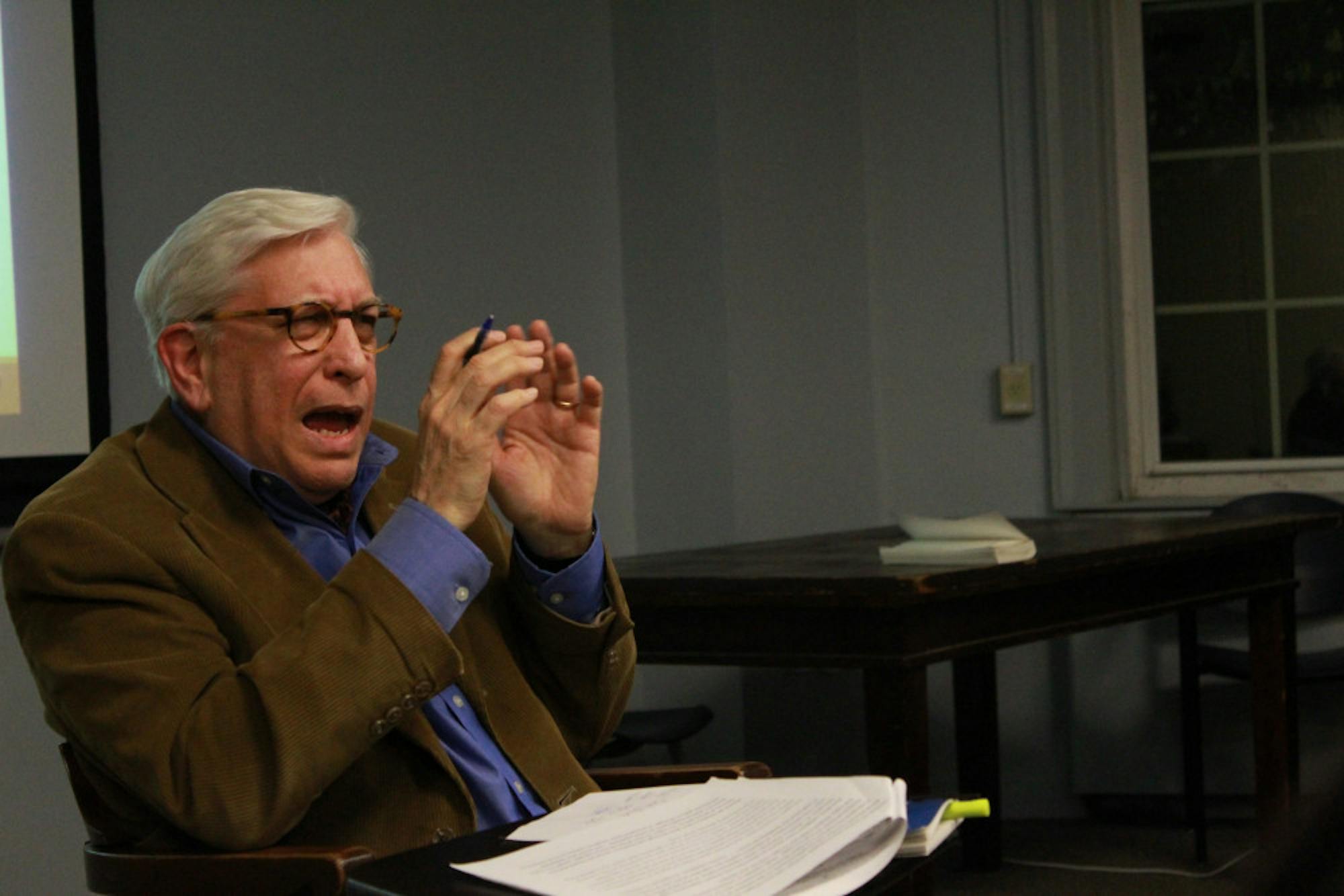Building Understanding through International Learning and Development (BUILD): Latin America and BUILD: India welcomed Laurence Simon, director of the Center for Global Development and Sustainability at Brandeis University, to talk about how international development focuses on ethics and morality last night in Eaton Hall.
Simon began by providing an overview of the center and the fields on which its research focuses. These include climate change in East and West Africa, innovative technology in Bangladesh and Sri Lanka and international social exclusion.
Simon praised the work that BUILD organizations do but also acknowledged that unbuilding needs to happen too.
"A lot of structures like the World Bank and the [International Monetary Fund] ... they do some very important things, we can talk about that, but when you talk about neoimperialism, neocolonialism ... the institutions perpetuate a certain paradigm, a certain model of development that may not actually be in the interests of poorer nations," he said.
Simon also suggested that the United States is not truly a developed country like some may think.
"If we were a true developed country, we wouldn't have poverty," he said.
Simon went on to explain that the reasons poverty exists globally is an important component of the discussion.
"The issues that you've raised about what makes an object community-driven, in fact what is sustainable development, are key issues also because we know that a lot of developing fails, a lot of development is not effective development, a lot of development is very top-down ... rather than really participatory development," he said.
He then asked the audience members whether poverty exists in India and if so, why it exists and to what extent it is present.
After taking group suggestions, Simon suggested that India is currently in a position where it can decrease its future chances of poverty. He said that while India has a large population, it is comprised of many young people and is smaller than China's population. He added that if these people's needs are met and they get ample training, they will obtain employment and therefore avoid poverty.
"Now contrast that to most industrialized nations today," he said. "Do you know what Japan's population is today, approximately? About 125 million people. Do you know what it's projected to be in about 30 years? About 85 million. Japan's population, like almost every industrialized nation in the world, is plummeting."
Simon later pointed out that a major problem in India as well as in Latin American countries is structural inequality, which is largely influenced by India's caste system.
"If you were born into a caste, then you will die in that caste," he said. "There is no way out of a caste. If you had a Ph.D., which some Dalits are getting higher education now and can graduate with Ph.Ds, you will always still be a Dalit. In most cases, they suffered the discrimination of being a Dalit."
There is a large amount of fixed and structural discrimination towards Indian lower-class and tribal people, which creates a conflict between contemporary and traditional economies, Simon said.
"And I think that is probably one of the greatest drags on Indian development," he said.
Simon used the example of B.R. Ambedkar, who despite attending school, was forced to sit outside and listen in on lessons rather than be in the classroom.
"If by accident [Ambedkar's] shadow crossed another student, if by accident he touched their food, if by accident he touched them, played with them ... this would be pollution," he said.
Simon concluded by taking several questions from the group, including one about whether poverty and social inequality sustain each other.
"All development is contextual, so we really need to look at it place to place, where there is great inequality," Simon responded. "If you look at many developing countries, you will see significant structural inequalities and that perpetuates poverty."
But Simon also acknowledged that it seems easier to reduce poverty in countries that limit freedom of the press, using the examples of India and China.
"We often say there are no models, but there's lots of lessons," Simon said.
BUILD hosts Laurence Simon for discussion on development, social justice






